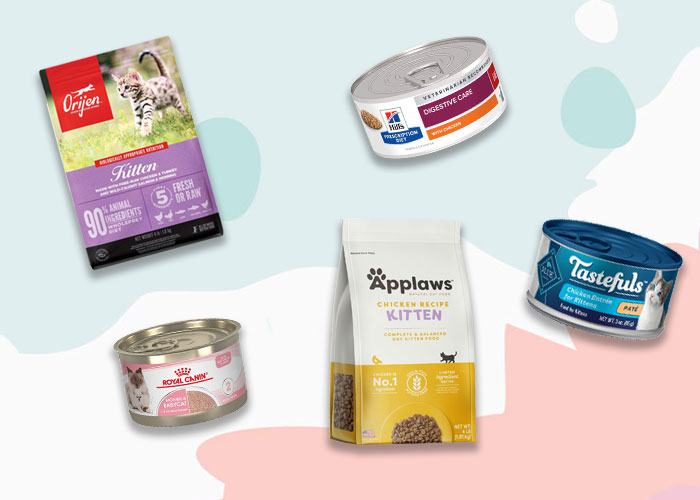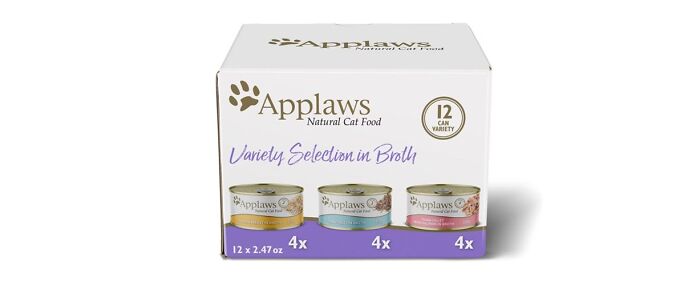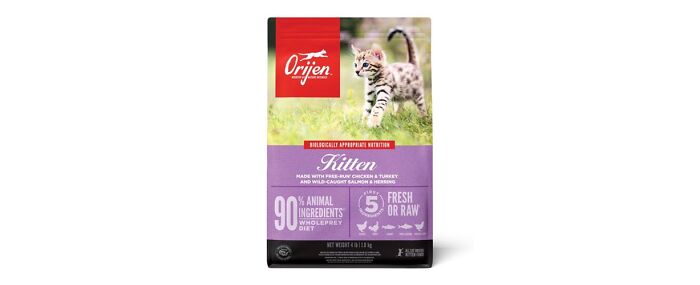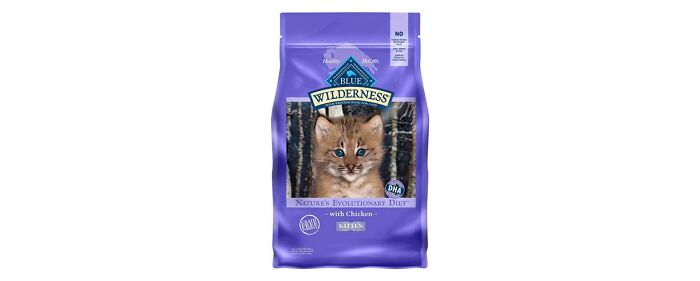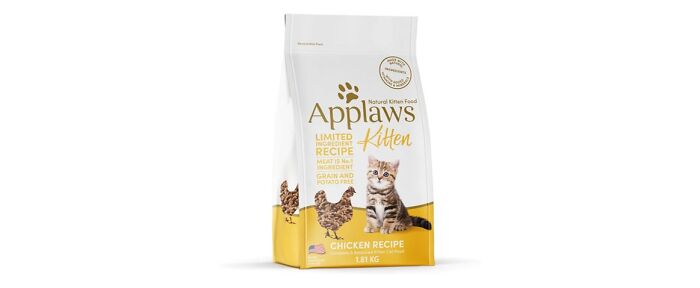Our Community Picks Best Overall: Royal Canin Mother and Baby Cat Mousse $13.69 Runner-Up: Blue Buffalo Tastefuls Natural Kitten Pate $7.29 Also Great: Applaws Variety Selection in Broth $24.49 Note: All prices and deals listed are accurate as of the time of publishing. Please check the provided links for the most current pricing.
Things to Know Before Choosing Kitten Food
Before we dive in, it’s important to note that there is no one “best” food for animals, as their ideal diet should be tailored to their unique needs. However, one thing that applies to all felines is they are obligate carnivores and should be fed a meat-based diet as soon as we wean them from their mother (3-4 weeks of age). Type of food: You have to decide whether to provide your kitten with wet or dry food or if you’d rather give it mixed feed. Underlying health conditions. Most little kittens are typically healthy and won’t face any medical issues. However, some may experience problems such as ongoing diarrhea, which should be considered when determining their nutritional requirements.Cat’s breed. A kitten’s breed can affect its protein needs. Larger and more active breeds, such as the Maine Coon, Savannah, and Siberian, typically require higher protein levels.Protein. We want to ensure the product contains balanced fatty acids and essential vitamins and minerals from a fresh protein source, such as chicken or fish. DHA (omega-3 fatty acid found in cold water and fatty fish such as salmon) is critical for brain and eye development during the first months.Carbohydrates. Carbs are a good energy source, but excessive consumption can result in health problems such as obesity and diabetes.
Best Wet Kitten Food
Wet food is an excellent option for younger cats. It’s easy to chew and digest, and the high moisture content helps to flush out the kidneys and bladder. Additionally, it can help improve hydration levels, which is especially important for cats prone to vomiting or diarrhea. Type of food: You have to decide whether to provide your kitten with wet or dry food or if you’d rather give it mixed feed. Underlying health conditions. Most little kittens are typically healthy and won’t face any medical issues. However, some may experience problems such as ongoing diarrhea, which should be considered when determining their nutritional requirements. Cat’s breed. A kitten’s breed can affect its protein needs. Larger and more active breeds, such as the Maine Coon, Savannah, and Siberian, typically require higher protein levels. Protein. We want to ensure the product contains balanced fatty acids and essential vitamins and minerals from a fresh protein source, such as chicken or fish. DHA (omega-3 fatty acid found in cold water and fatty fish such as salmon) is critical for brain and eye development during the first months. Carbohydrates. Carbs are a good energy source, but excessive consumption can result in health problems such as obesity and diabetes.
How Long to Feed Your Cat Kitten Food?
Feeding your kitten with a specific diet that caters to their nutritional needs until they’re almost a year old and a few months longer for larger breeds is essential. You can offer dry and wet kitten foods, but never give them adult cat food as it won’t be nutritionally appropriate.
How Much Should a Kitten Eat?
Each food has a different nutritional profile and amount of calories, so owners need to follow the feeding guidelines on the packet, which depend on the kitten’s weight and age and change as they grow.
How to Transition from Kitten Food to Adult Cat Food
It’s important to gradually transition to new cat food over several days to avoid stomach issues. Begin by giving kitten food and adding 10-20% adult food on the first day. As long as your cat can tolerate the change, increase the new food daily while decreasing the kitten food. Your cat should have adapted to the new food by the fifth day. However, if your cat experiences stomach discomfort, it’s best to slow the transition to a few weeks.
Can Kittens Eat the Same Food as Adult Cats?
Under no circumstances should we offer adult cat food to our kitten. It could lead to improper development and nutritional deficiencies. As responsible owners, we must ensure that our kitten gets the proper diet for their life stage.
Can I Prepare Kitten Food at Home?
Preparing a homemade diet for your kitten may seem like a good idea, but it’s pretty challenging to get it right. Unless you’re working with a nutritionist, creating a balanced diet that meets your kitten’s nutritional needs is difficult. Most recipes found online are incomplete and may not provide the necessary nutrients. Follow Bored Panda on Google News! Follow us on Flipboard.com/@boredpanda! Please use high-res photos without watermarks Ooops! Your image is too large, maximum file size is 8 MB.
